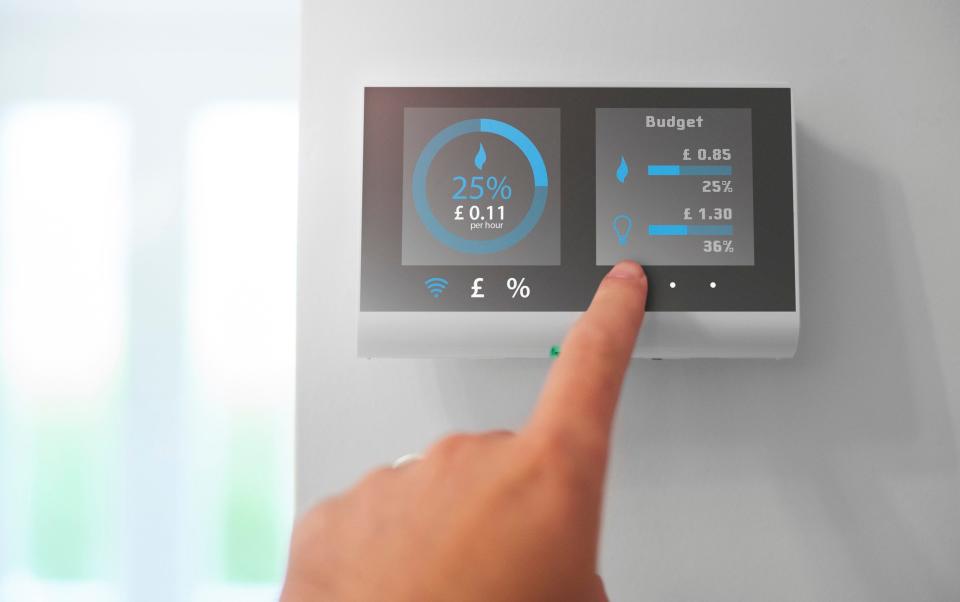Smart meter tariffs now ‘massively overpriced’ as prices triple

Energy tariffs that were supposed to save homeowners hundreds of pounds a year on their bills now cost three times more.
The gas crisis has rendered specialist smart meter tariffs, once lauded as the future of energy pricing, effectively redundant as prices have risen across the board. So-called "time of use” smart meter tariffs, which lower the price of electricity when demand is low and increase the cost in times of high usage, were sold as one of the key benefits of the smart meter rollout.
In normal times these deals would save the typical family £210 a year compared with the average variable tariff from one of the big six energy firms, according to supplier Octopus.
Customers could even get paid to use electricity when energy prices dropped so low they became negative.
However, following the spike in wholesale energy costs, these deals now mostly charge customers close to the maximum rate possible, whatever time of day they use their appliances.
Under normal circumstances, a house in London on a time of use tariff could expect to pay between 5p per Kwh up to 30p per Kwh depending on the time of day. Today, they are charged roughly 34p per Kwh no matter what time they use their energy.
This means households will be paying more than double what they did at the beginning of last year, and more than three times what they did in the summer of 2020.
In July 2020, the average price of energy per day for a London home on Octopus Energy's time of use tariff Agile was around 8p per Kwh. This increased to 16p per Kwh at the beginning of last year, before rising to 22p per Kwh in the summer. Today, customers pay on average 34p per Kwh.
This would raise the cost of the average household's electricity consumption from roughly £1.27 a day in early 2021 to £2.70 a day today. The changes also mean homes are no longer able to mitigate this by shifting usage to off-peak times. The deals only apply to electricity usage, and gas prices do not change.
Octopus Energy, now the only large supplier to offer the tariffs in Britain, has warned customers that most households would be better off using a traditional energy tariff.
The supplier said on its website: "[Our] half-hourly pricing exposes customers to wholesale market rates. Over the past few years, this has enabled customers to save significantly compared to a standard tariff, but right now, prices are consistently high.
"Most homes will be better off staying on a standard fixed or variable tariff for the Winter."
Time of use tariffs formed part of the rationale for the smart meter rollout. Smart Energy GB, the body that promotes the devices, said they would help support a greener energy system by encouraging customers to use more energy outside peak periods.
The system increases fossil fuel usage during times of high demand and when energy from less reliable solar and wind sources is in short supply.
It was thought providing a financial incentive for households to use less energy at peak times would help smooth out demand across each day, reducing the need for fossil fuels.
Joel Stark, of metering and data provider Stark, said: "These kinds of benefits formed a huge part of the original business case for smart meters. Those benefits in turn justify the exploding costs of the rollout.
"If they aren’t happening, this programme is probably not creating value for Britain. So why are we ploughing on with this massively overpriced solution?"
Octopus said that its "Go" tariff, which offers cheaper rates at night, still charges customers 7.5p per Kwh between 12.30am and 4.30am.

 Yahoo Finance
Yahoo Finance